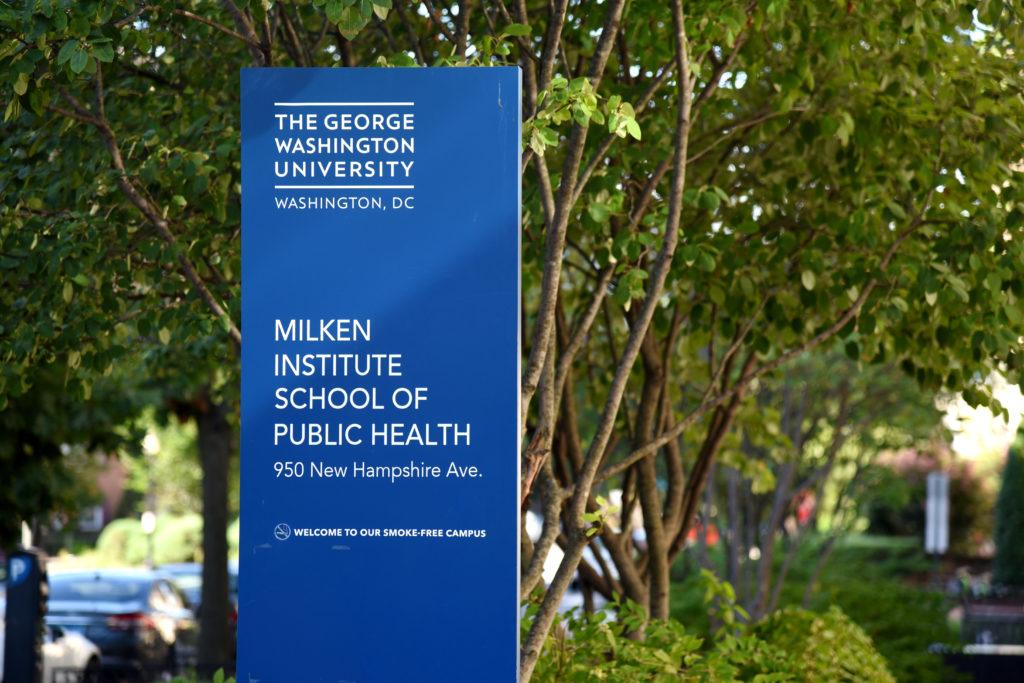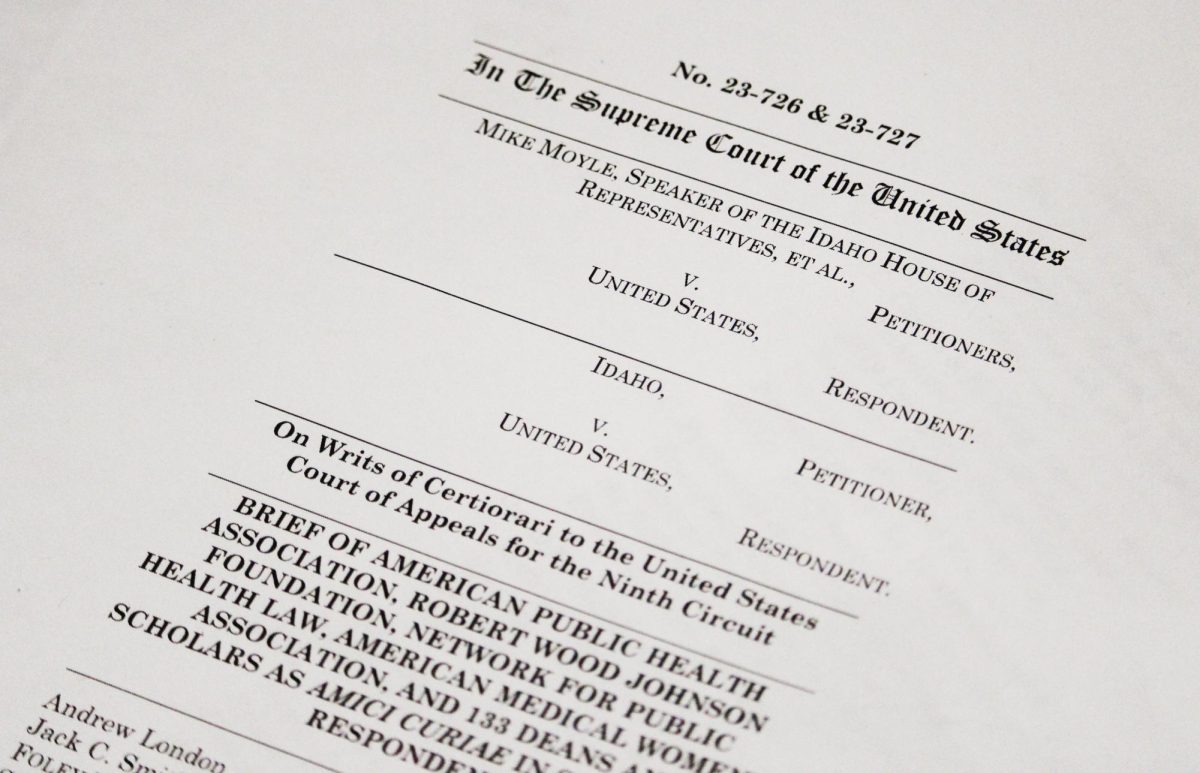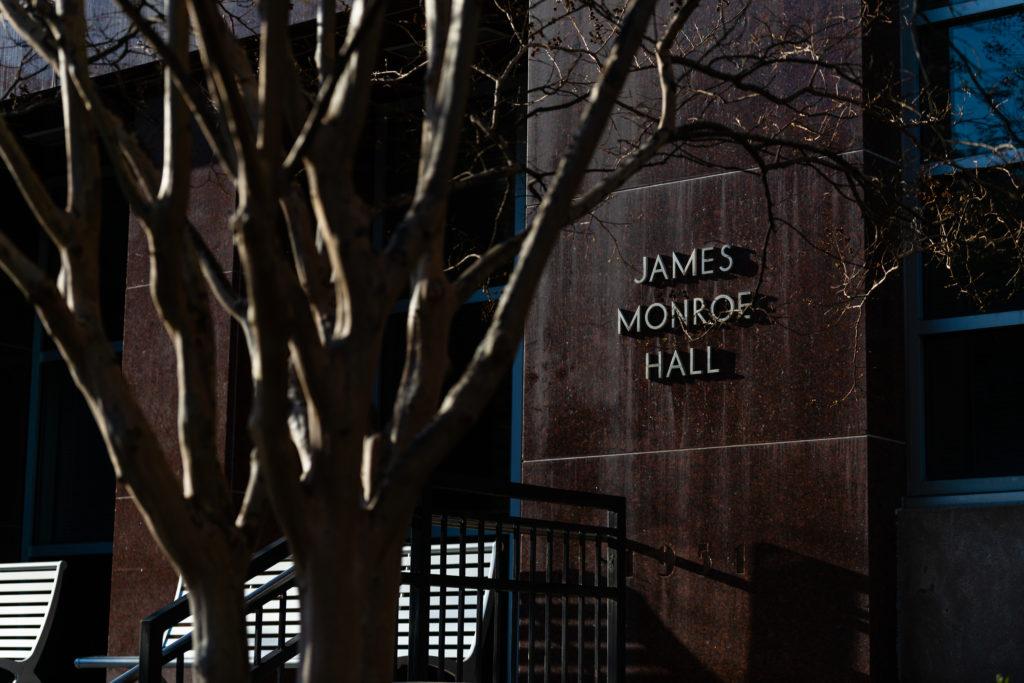Amtrak is enlisting the assistance of the Milken Institute School of Public Health’s department of environmental and occupational health to advise the agency on how to best handle workplace and operational safety during the ongoing pandemic.
The rail service partnered with the public health school earlier this month to determine the best sanitization practices for its trains and monitor regional and national COVID-19 data, Amtrak spokesman Jason Abrams said. He said Amtrak’s internal health and safety team will collaborate with Milken faculty to enhance its coronavirus response and delivery of a new standard of travel, which includes some “contact-free” services and cleaning protocols.
Abrams said Milken’s team will advise Amtrak on reviewing safe work practices, implementing workplace practices that go beyond the latest public health guidelines and adding measures to enhance Amtrak’s coronavirus response. He said passengers are currently required to wear masks on trains, and Amtrak officials have increased cleaning protocols to prevent the spread of COVID-19 on its trains.
“In an effort to simplify and safeguard the travel experience, several cleaning, contact-free and convenience measures have been implemented into every part of the customer journey – from time of booking to the moment of arrival,” Abrams said in an email. “Amtrak continues to evaluate current practices and launch new initiatives to support personal safety.”
Milken spokeswoman Mina Radman did not return multiple requests for comment about why public health officials chose to partner with Amtrak and how they will advise the agency.
Transportation experts said transportation agencies can implement practices like increasing social distancing on trains and limiting eating to prevent the spread of COVID-19 during travel.
James Moore, a professor of civil and environmental engineering at the University of Southern California, said Amtrak should close down food services or commissary cars while COVID-19 is a concern. He recommended practices like wearing masks, spacing out passengers and sanitizing surfaces to make traveling on trains as safe as possible.
Amtrak has limited its number of bookings to allow passengers to maintain distance on its trains and has limited its cafe cars to carryout-only orders, according to Amtrak’s website.
“We know a lot of the basics,” Moore said. “Masks are extremely important, and I think that if we are disciplined about wearing masks and about hand washing, staying as far away from people as we can, we can engage in a lot of activity with acceptable levels of risk, and that includes traveling.”
Moore said train companies should treat train cars as “indoor environments,” which are higher risks for COVID-19 spread than outdoor environments when developing upgraded travel protocols. He said travel companies are currently struggling financially because they depend on demand for travel, and significantly fewer people are traveling now.
“I often get the question, ‘What is safe?’ and safety is a relative term,” Moore said. “Safe just means an acceptable level of risk, and the implicit question there is when is that risk acceptable, and acceptability of risk varies with people. I can’t tell you what is safe for you or for others. I can tell you what risks I am willing to accept.”
Sean Qian, an associate professor of civil and environmental engineering at Carnegie Mellon University in Pittsburgh, said the city has seen about an 80 percent decrease in the number of people using public transportation compared to before the pandemic. He said train companies could dispatch more trains when needed to allow passengers adequate space to maintain six feet of distance from each other.
“Providing some technology during the pandemic to enable some sort of contact tracing will be helpful to lower the chances of COVID-19 spread,” Qian said. “There is technology already there, and agencies like Amtrak already have the information of passengers on board.”
Kara Kockelman, a professor of transportation engineering at the University of Texas at Austin, said enforcing proper mask-wearing is crucial to reduce the spread of COVID-19 on trains. She said she’s noticed some people wear masks below their nose, but masks should cover the nose and mouth to prevent the spread of the virus.
She said train companies could enforce a system in which passengers report others not following COVID-19 protocols.
“They could even have a photo reporting line for if you see people who aren’t behaving,” Kockelman said. “You can’t have a conductor or employee on every train car, so you have to leave it up to other travelers to help get that information out, even if it’s quietly through reporting in a platform with photos taken on different train cars at different times of the day.”
Ryan Liptrot contributed reporting.







